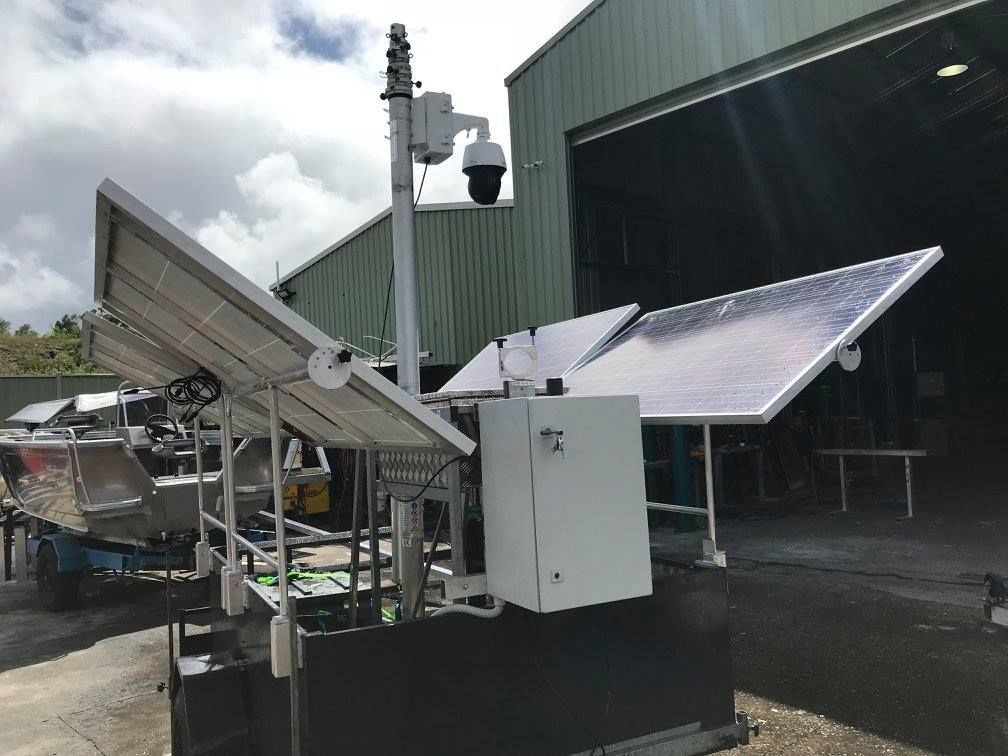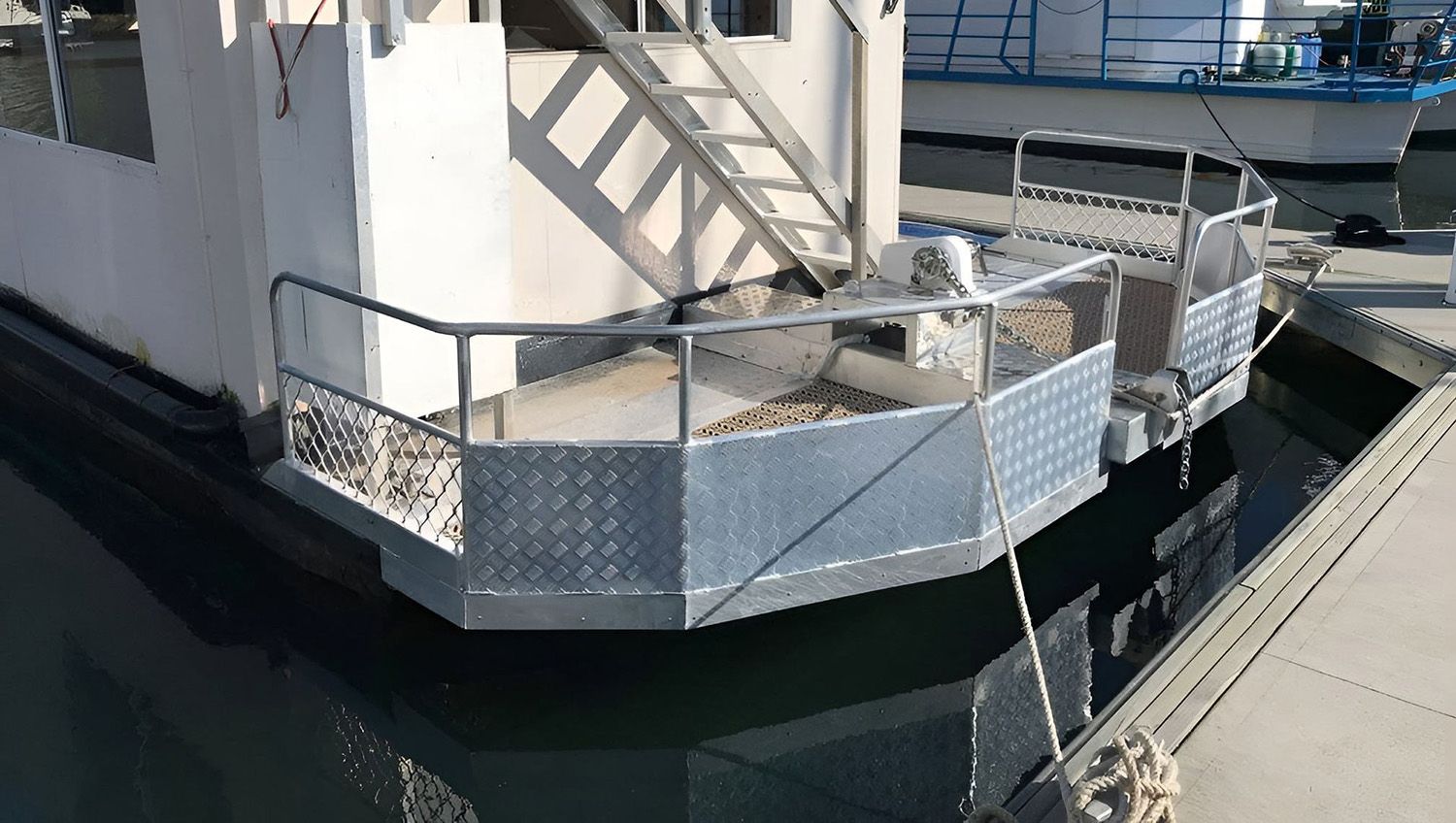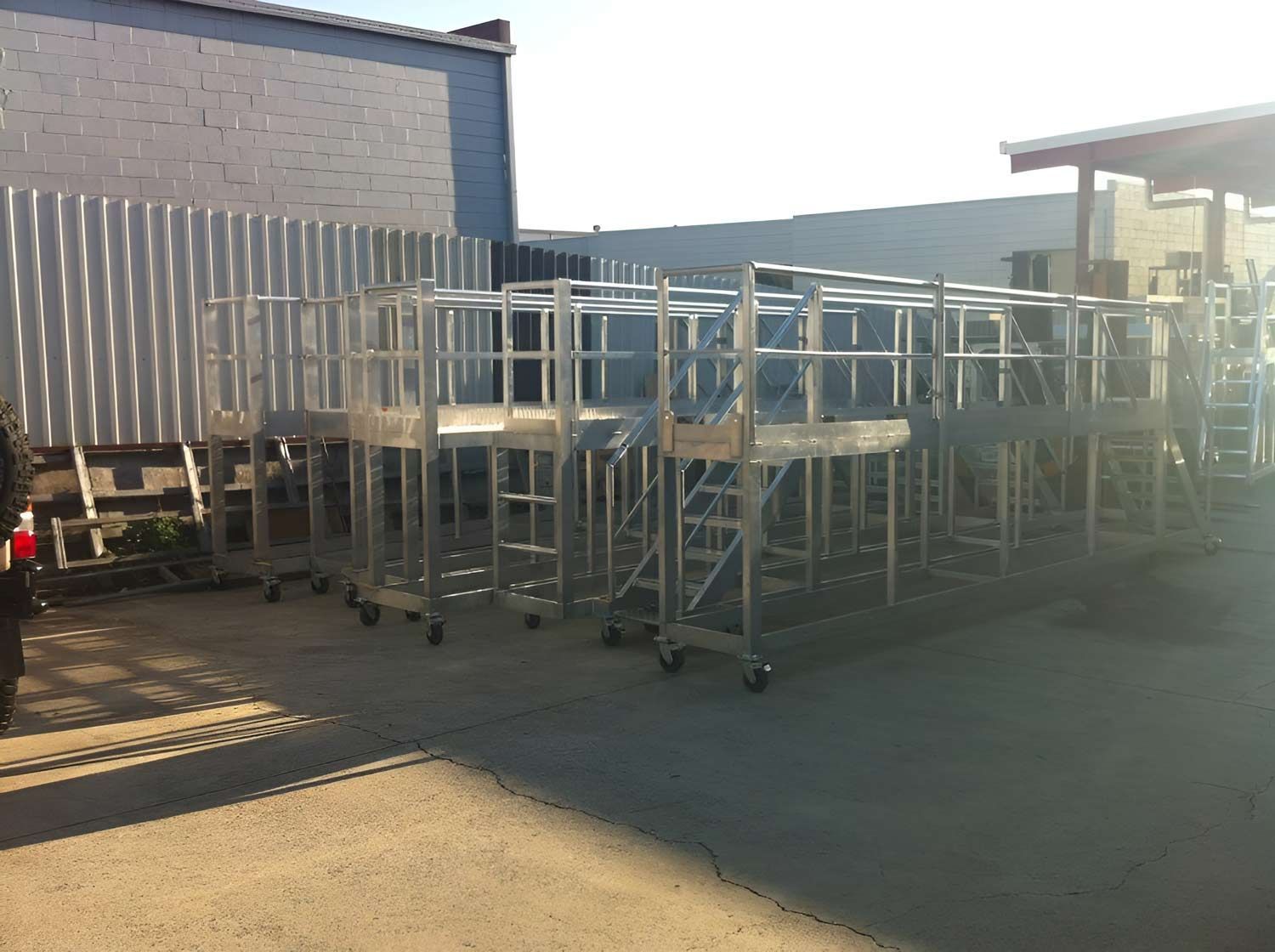How Preventive Maintenance Extends The Life Of Your Metal Fabrication Projects
Investing in
custom-fabricated metal structures—like gates, pontoons, shelving, or frames—isn’t just about their initial function or visual appeal. These structures are constantly exposed to weather, load stress, moisture, and everyday wear. Without a maintenance routine, even the strongest fabrication work can deteriorate. Corrosion, metal fatigue, or a failed weld can compromise safety and lead to expensive repairs or replacement. Preventive maintenance helps avoid all of that. Whether you're a homeowner, contractor, marine operator or business with metal infrastructure, understanding how to care for these structures protects your investment and extends the life of the fabrication.
Why Preventive Maintenance Is Essential For Metal Fabrication Projects
Fabricated metalwork is built to last—but only if it’s looked after. The strength of steel, aluminium or alloy isn’t enough to resist long-term exposure to stress, water, UV light, salt or chemicals without some form of protection. Maintenance is about being proactive rather than reactive.
- Spot corrosion, cracking or distortion early before they compromise load-bearing capacity
- Extend the life of welds, joints and mechanical components
- Prevent unexpected failures or downtime in critical structures or equipment
- Reduce costs by fixing minor issues before they become major repairs
- Maintain the integrity of the structure so it continues to perform as intended over time
Preventive care is especially important for custom-fabricated pieces where replacements aren’t off-the-shelf solutions.
Common Maintenance Tasks You Should Carry Out Regularly
Keeping a fabrication project in top condition doesn’t require daily work—but it does need consistency. These tasks apply across residential, industrial, and marine environments, and they should be adapted to the specific structure’s location and function.
- Inspect welds for signs of fatigue, cracking or rust creep
- Check joints, bolts and brackets to ensure nothing has loosened under load or vibration
- Clean all exposed surfaces, especially in marine or dusty industrial areas
- Remove salt, oil or chemicals that can corrode coatings or degrade finishes
- Lubricate moving parts—like hinges, rollers, slides or pulleys
- Check painted or powder-coated surfaces for bubbling, flaking or chipping
- Reapply protective coatings where needed to stop water or UV damage
- For marine gear: inspect submerged components for pitting, barnacle growth or galvanic corrosion
How Professionals Can Detect And Fix Early Signs Of Wear Or Damage
Some damage isn’t visible to the naked eye until it’s advanced. Fabrication professionals are trained to spot hidden signs of stress or failure using specialised tools and techniques. This can help prevent accidents, downtime or equipment loss.
- Non-destructive testing (NDT) to assess weld quality and metal integrity
- Use of ultrasonic tools or dye penetrant testing to find internal cracks
- Assessing metal movement under load to detect frame weakness
- Rewelding or reinforcing joints with appropriate metal grades
- Removing corroded sections and replacing them with matching components
- Restoring protective coatings, sealants or finishes based on exposure type
Materials And Finishes That Offer Better Durability With Less Maintenance
Not all metals are equal—and neither are the finishes applied to them. Selecting the right materials and treatments during the fabrication stage can significantly reduce the maintenance burden over the product's life cycle.
- Aluminium: lightweight and naturally resistant to rust, ideal for marine and outdoor applications
- Stainless steel: corrosion-resistant and strong, well-suited to food-grade, industrial or medical settings
- Mild steel: cost-effective, but relies heavily on paint or powder coat protection
- Galvanised steel: zinc-coated for corrosion resistance, especially in wet or humid areas
- Marine-grade alloys: designed to resist saltwater and electrochemical degradation
- Powder-coated finishes:
long-lasting and decorative, but can chip under heavy use
How A Regular Inspection Schedule Saves Money Long Term
It’s tempting to ignore small issues—but even a minor crack or rust spot can turn into a major failure if left unchecked. Inspections let you manage maintenance on your terms, not in an emergency.
- Detect deterioration early, while fixes are simple and low-cost
- Prevent downtime or shutdowns in business operations
- Plan ahead for part replacements, recoating or reinforcements
- Lower insurance or liability risks by maintaining structural safety
- Build a maintenance record that helps with audits or resale value
The money saved in avoided breakdowns or replacements often outweighs the cost of inspections many times over.
Structural Integrity: Why Wear, Cracks, & Corrosion Are The Real Enemy
A fabrication job can look fine while quietly weakening. Structural failure often begins with undetected wear in a weld, a rusting connection or metal fatigue from repeated motion or load.
- Metal fatigue from heavy loads, repeated stress or vibration
- Micro-cracks around welds or bends, especially in older or high-use components
- Fastener corrosion or loosening, causing instability
- Movement in supports or frameworks leading to structural misalignment
- Breaks in paint or coatings exposing the metal beneath to the elements
If not monitored and maintained, these weak points can quickly spread, leading to partial or complete failure under stress.
Maintenance In Marine & Coastal Environments: Extra Vigilance Needed
Coastal air and marine environments are extremely corrosive to most metals. Salt accelerates rust, promotes electrochemical reactions between metals, and breaks down protective coatings.
- Rinse exposed metal with fresh water frequently, especially after storms or salt spray
- Check for galvanic corrosion where dissimilar metals meet (e.g. steel brackets on aluminium pontoons)
- Inspect underwater or splash-zone areas for pitting or barnacle damage
- Replace sacrificial anodes that are designed to corrode first and protect more critical parts
- Reapply marine-grade paints, coatings or anodising finishes to resist future corrosion
Creating A Maintenance Plan That Fits Your Project & Goals
Maintenance doesn’t need to be complicated—but it does need to be consistent. Creating a basic schedule tailored to your structure helps you stay in control and extend its lifespan.
- Break down the structure into components: supports, welds, fasteners, coatings, and moving parts
- Decide on inspection intervals based on use: monthly for high-exposure items, quarterly or annually for others
- Log all inspections, repairs or concerns so trends can be spotted
- Schedule tasks like lubrication, cleaning, painting or re-tightening based on wear patterns
- Set reminders or assign tasks to team members or service providers
- Review the plan annually and adjust based on condition, usage or exposure
Protect Your Investment With Expert Metal Fabrication On The Gold Coast
Need help maintaining your fabricated steel or aluminium structures? At
Brumb’s Welding & Fabrication, we can inspect, repair and reinforce your projects for long-term durability. Whether it's marine-grade aluminium, custom platforms or heavy-duty steel, we’ll help extend the life of your investment. Get in touch via our
contact page to learn more.







